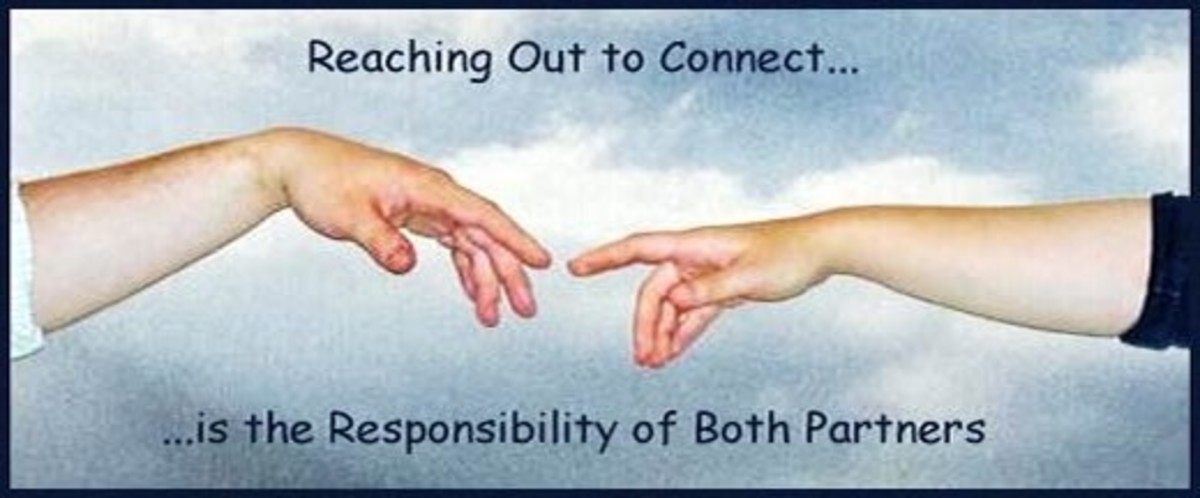
A young man in his late twenties recently told me: “I don't want all the tea in China. All I want is someone to love — and to love me." A young woman said that she was so bursting with love that she couldn't bear it any longer. Indeed, one poet believes that it is better to love than to be loved.
“The pleasure of love is in loving. We are happier in the passion we feel than in that we inspire”
What do these two single adults have in common with many others? They are people who are lonely of heart and starving for affection and closeness. They sense strongly that their pain will not be assuaged through temporary relationships. They are looking for someone to fall in love with, marry, and love. But there is confusion in our American-Jewish cultureasto which should come first, the chicken or the egg? Love or Marriage? Perhaps some Biblical history will illuminate the sources of this confusion.
The Torah tells uswe had three forefathers:Avraham, Yitzchak and Yaakov. The history of their marriages is instructive. We know that Avraham considered his wife, Sarah, beautiful, and told her so, but we don't know whether the marriage was self initiated or arranged.
We know that Yitzchak’s marriage was arranged. His father's trusted servant Eliezer took 10 camels loaded with much wealth, went to Avraham’s kin, sought out a kindly woman, and brought home Rivka for Yitzchak. The Torah says that "Yitzchak took her, she was a wife to him, and he loved her." First came marriage, then came love.
The story of Yaakov is different. He met his wife at a public well when she came there to water her father's flocks. It was love at first sight; and after telling Rachel of his long journey and the fact that he was a kinsman, he kissed her right there on the spot. He then worked out a deal with Rachel's father, laboring for seven long hard years in the blazing sun by day, and the cold, freezing desert at night tending the flocks. And we learn that "the seven years were but as a few days because of his love for her." Here was a story of a story of romantic love! Clearly, first came love, then came marriage.
What a confusing heritage from our own Jewish ancestry! Why blame Hollywood and T.V. when we have two conflicting approaches to the love-marriage axis straight back to our own Avos and Emos?
Indeed, for many centuries in Europe our ancestors experienced arranged marriages. In certain parts of the world, e.g. India, the arranged marriage is the accepted norm even today. However, among the overwhelming majority of Westerners the norm is self initiated partnerships. Singles seek each other out at social functions, lectures, at simchas, and online, date and get to know each other. This latter approach is the norm for virtually all modern orthodox Jews. However, even among singles when the introductions are made by shadchanim, the couple go out with each other, get to know each other and decide their future. Among Chassidic Jews, marriages are arranged, with the proviso that the couple meet each other at least once, and sometimes twice for the purpose of approval — or veto. Once married there is the freedom to love, indeed a commitment to love. Which way is better?
Do the divorce rate and fewer children of modern Jewish couples signify lesser love among those who love first and marry later? Do families of six, eight and sometimes 10 or more children, as well as a scarcity of divorces among Chassidic Jews, signify the superiority of the "marry me now, love me later" point of view? Clearly many other criteria should be used to determine the relative happiness of a marriage; and very possibly, the two criteria noted here are due to sociological factors not at all related to the main question, viz. the happiness of the spouses.
In either case, I don't know whether love or marriage should come first; nor am I aware of anyone who has investigated this question.
Getting back to discerning the benefits of an arranged marriage vs. a love marriage. A very thorough long-range investigation should be made. The ever-increasing divorce rate among Jewish couples demands that we stop ignoring this problem. Is the old fashioned way (for generations, in Europe, matches were made by shadchanim) superior to the modern method? Should such an important societal event as marriage be entrusted to individuals who are totally inexperienced at making such a complex lifelong choice? Should love precede marriage, or vice versa? Which approach is more likely to produce a happy marriage?
It is doubtful whether this question ever could be answered definitively for any specific couple. However, a carefully structured investigation with sophisticated statistical control of the appropriate variables would probably shed some helpful light onto the problem. In a properly conducted investigation, both groups should be matched. Couples should be matched on all appropriate variables: age, education, mental and physical health, economic status, philosophy of life, religious beliefs and behavior, childhood history, family stability, personal maturity, communication skills, self awareness, capacity for empathy, mutuality of interests and compatibility within each couple, and every other variable that supposedly affects marital happiness.
Such a study would be extremely cumbersome, complicated, and require much preparation and many professionals. The study would be very expensive and protracted –since it would be a longitudinal study and we would want to follow the couples for ten, twenty and even thirty years. Furthermore, to be statistically valid we would be told by the statisticians that we would need scores of couples in each group. Another difficulty would be recruiting volunteers. How many modern orthodox Jews would agree to be part of the “marry me first, love me later (arranged marriage group)”? How many Chasidic parents would let their children mix freely for years with members of the opposite sex until they can join the “First comes love, then comes marriage” group?
Can such a study ever be done? I don’t know. But if it were done, is it possible that the rallying cry of Jewish singles at the end of the 21st century will be: Marry me now, love me later? What do you think?
Reuben E. Gross. Ph.D. is a NJ dually Licensed Psychologist and Marriage Counselor. He is a Fellow, Academy of Clinical Psychology and a Diplomate in Psychotherapy A.B.P. and A.B.P.P. Dr. Gross has a private practice in Teaneck, NJ. Letters, comments and questions are invited call Dr. Gross at 201 837 0066 or email address: MarriageCounselorNJ.com. For more articles on related subjects see his website MarriageCounselorNJ.com.

 Previous
Previous

